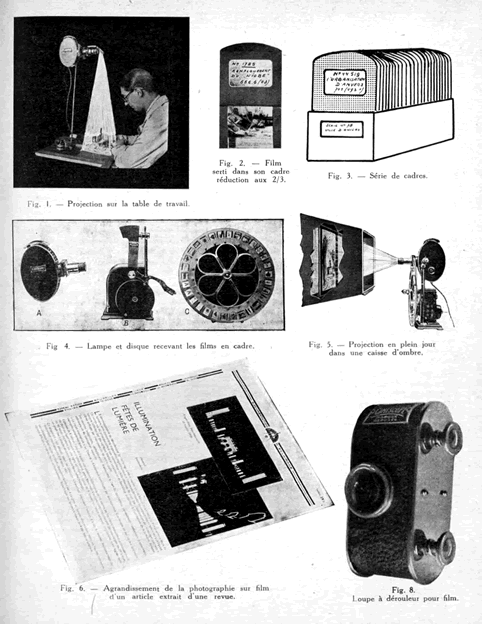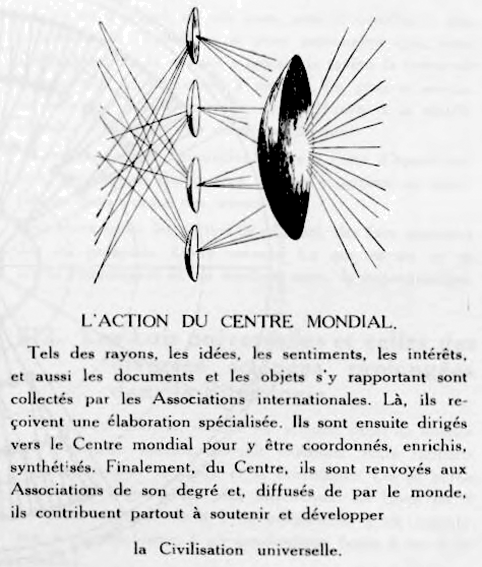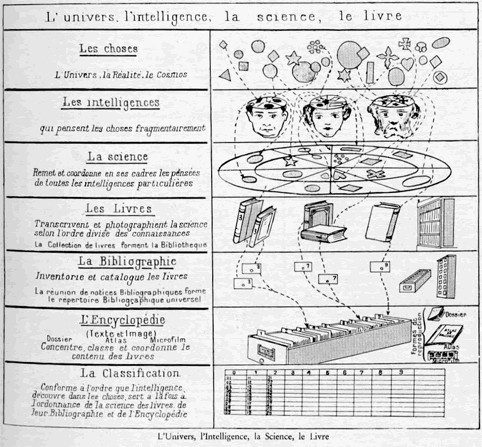Marshall McLuhan: Counterblast (1954–) [English, Spanish]
Filed under book | Tags: · information, mass media
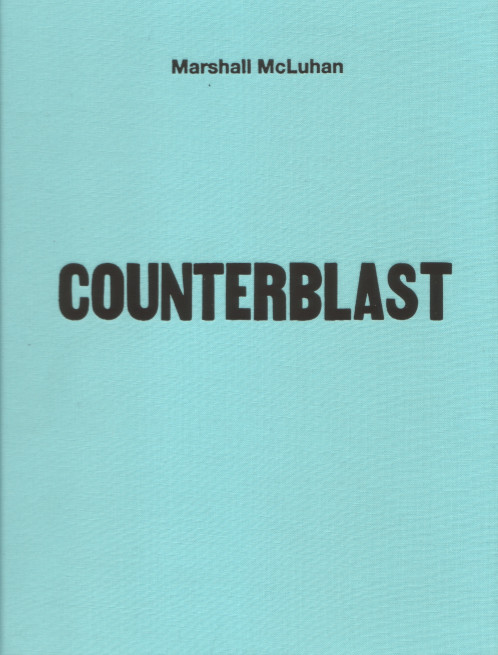
“In 1969 Marshall McLuhan observed that “today we live invested with an electric information environment that is quite as imperceptible to us as water is to a fish.” He was convinced that the new electronic media shape not only the information they convey but also our very consciousness and that in order to actually perceive this a counter environment is needed.
To demonstrate his point McLuhan wrote Counterblast. More a manifesto than a book, Counterblast is a typographically explosive compilation of short essays and probes (complex ideas compressed into a few thought-provoking words), all of which focus on the effects of media on the human condition. It could be seen as a compilation of bold headlines and it is hauntingly prescient, as this superbly reproduced facsimile of the original edition will affirm.
In true McLuhan style the title ‘COUNTERBLAST’ is a play on the word ‘BLAST,’ the name given to a magazine designed by Wyndham Lewis in 1914 and the first publication ever to be set in heavy headline type, albeit in the face of enormous resistance from the London printing establishment who considered it anti-literary. McLuhan never wanted Counterblast to be perceived as literature, but rather a series of headlines as icons.”
This special edition was published on the occasion of transmediale.11 Response:ability festival, Berlin, 2011.
Foreword by W. Terrence Gordon
Afterward by Elena Lamberti
Publisher Transmediale, festival for art and digital culture, Berlin, in cooperation with Gingko Press
ISBN 9781584234562
Elena Lamberti about McLuhan (video)
publisher
publisher of the previous edition
Counterblast (English, 1954/2011 edition)
Counterblast (English, 1970 edition, via aphasic-letters.com)
Contraexplosión (Spanish, trans. Isidoro Gelstein, 1971, no OCR, added on 2013-11-22)
W. Boyd Rayward: The Universe of Information: the Work of Paul Otlet for Documentation and international Organization (1975)
Filed under book | Tags: · biography, document, information, knowledge, knowledge production, library
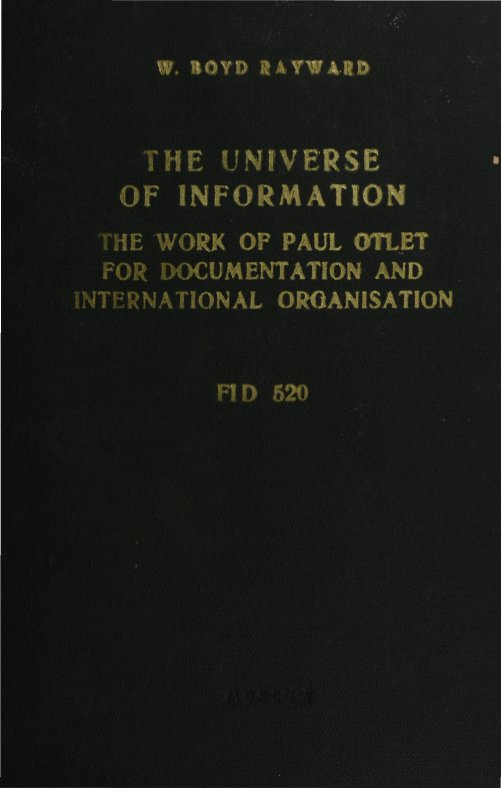
A biographical study of the life and work of Paul Otlet (1868-1944) focusing on his work for documentation and the creation of a range of international organizations.
Published for the International Federation for Documentation by the All-Union Institute for Scientific and Technical Information (Viniti), Moscow, 1975
FID Publication 520
390 pages
PDF, PDF, PDF (28 MB)
TXT, TXT
Paul Otlet: Traité de documentation. Le livre sur le livre. Théorie et pratique (1934) [French]
Filed under book | Tags: · bibliography, document, information, knowledge, knowledge production, library
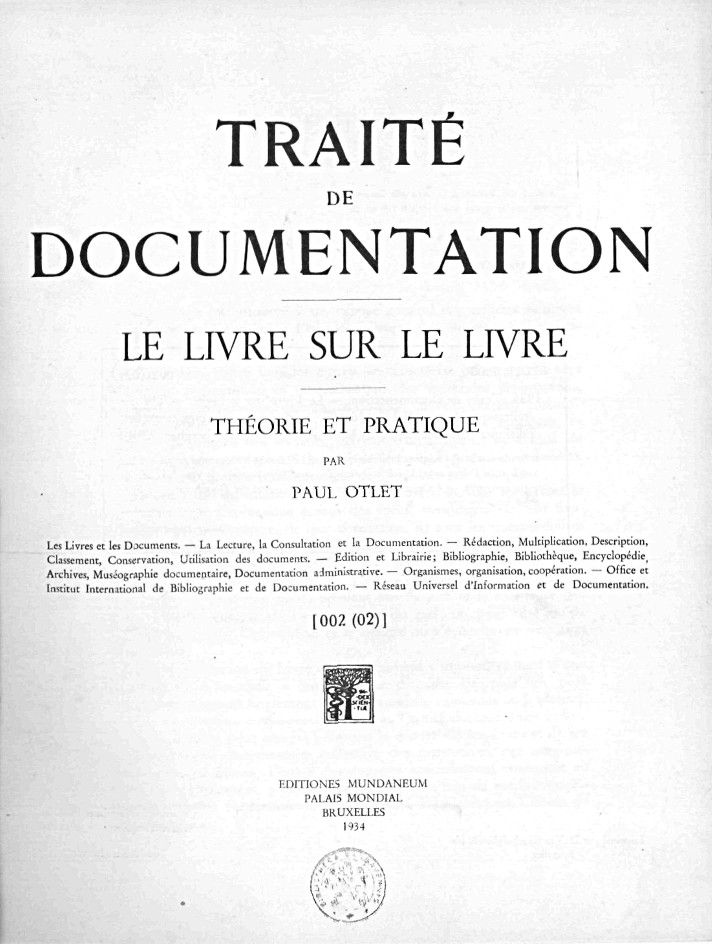
“In the 1920s and 1930s, Paul Otlet wrote about radio and television as other forms of conveying information, writing in his 1934 masterpiece Traité de documentation that ‘one after another, marvellous inventions have immensely extended the possibilities of documentation.’ He also predicted that media that would convey feel, taste and smell would also eventually be invented, and that an ideal information-conveyance system should be able to handle all of what he called ‘sense-perception documents’. The book has not been translated into English yet.” (Wikipedia)
Publisher Editiones Mundaneum, Brussels, 1934
431 pages
PDF (196M; scanned by the Ghent University)
Internet Archive (multiple formats)
Wikisource


